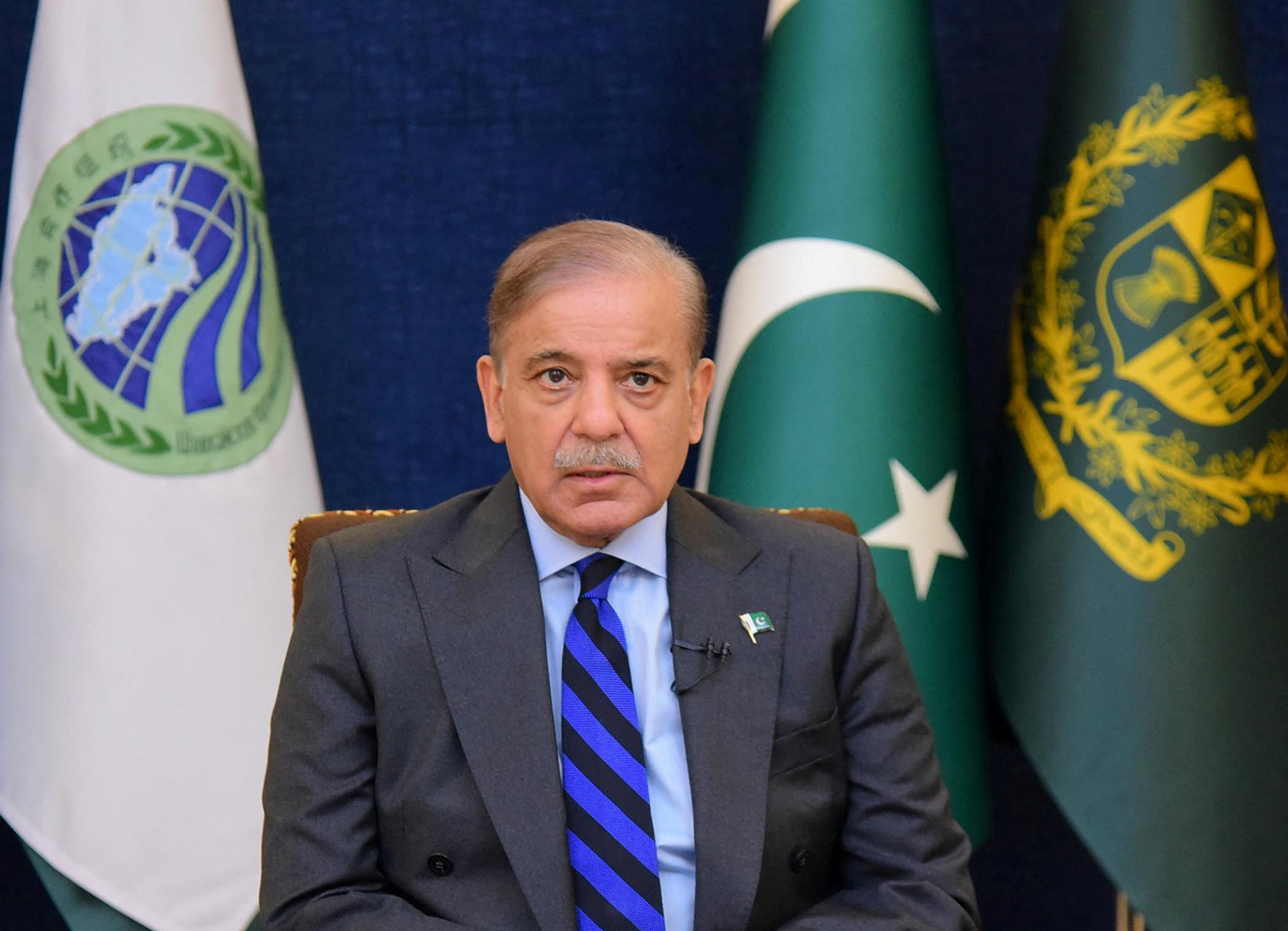Following the successful passage of the 26th Constitutional Amendment by both the Senate and National Assembly, Prime Minister Shehbaz Sharif stated that the legal reforms will facilitate swift resolution of cases awaiting judgment in the judiciary.
“With the 26th Constitutional Amendment, the judicial system will provide quick justice to the people,” the Prime Minister declared during a cabinet meeting in Islamabad on Tuesday, congratulating his team on this achievement.
He emphasized that the establishment of constitutional benches would enhance accessibility for citizens. “A comprehensive consultation involving both ruling and opposition parties preceded the amendment,” he noted.
The Prime Minister’s comments followed the ruling coalition’s successful enactment of the contentious judicial reforms, achieving a two-thirds majority with 225 votes in the National Assembly and 65 in the Senate. The reforms, opposed by the Pakistan Tehreek-e-Insaf (PTI), which boycotted the vote, include the selection of the Chief Justice of Pakistan by a parliamentary committee for a fixed three-year term, along with the formation of a new constitutional bench.
After a lengthy parliamentary session that began Sunday evening and concluded early Monday, PM Shehbaz advised President Zardari to endorse the legislation.
Once the president’s approval was granted, the Constitutional Amendment Bill 2024 became law, leading to the establishment of a special parliamentary committee responsible for appointing the new Chief Justice under Article 175A of the Constitution.
Incumbent Chief Justice Qazi Faez Isa, retiring on October 25, will present three senior judges’ names to the committee, which will recommend a candidate to the Prime Minister for final approval by the president.
During the cabinet meeting, PM Shehbaz reiterated that these constitutional changes fulfill a vision outlined in the Charter of Democracy, signed by former PPP chairperson Benazir Bhutto and PML-N leader Nawaz Sharif on May 14, 2006.
He expressed optimism that the amendment would promote Pakistan’s development and prosperity.
The Prime Minister also expressed gratitude to President Asif Zardari, PPP Chairman Bilawal Bhutto, and Jamiat Ulema-e-Islam-Fazl (JUI-F) chief Maulana Fazlur Rehman for their support in passing the legal reforms. He acknowledged his elder brother, Nawaz, for his guidance throughout the process.
Highlights of the Bill:
- Chief Justice of Pakistan’s (CJP) tenure fixed at three years.
- Establishment of constitutional benches in the Supreme Court and high courts.
- Senior-most judge of each bench to act as presiding officer.
- Parliamentary committee to nominate new CJP from a panel of three senior judges.
- Committee to propose a name to the PM, who will forward it to the president for final approval.
- Judicial Commission of Pakistan (JCP), led by the CJP and three others, responsible for the appointment of Supreme Court judges.
- JCP to monitor judges’ performance and report any concerns to the Supreme Judicial Council.
- Commitment to eradicate Riba (interest) from the country by January 1, 2028.










